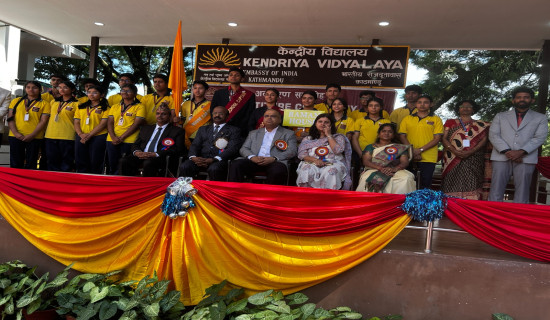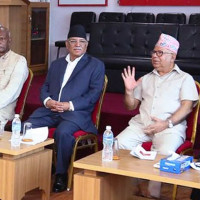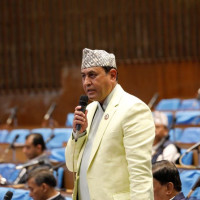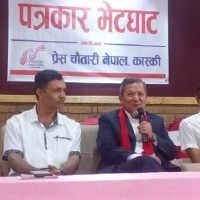- Friday, 22 August 2025
Cost Of Visa Dreams
When I look out my window in Kathmandu, I see houses. Big houses, bright paint, metal gates. Some are new, some are old, but all have one thing in common: at least one child who’s gone abroad. In my neighbourhood, there’s not a single house without someone in Australia, America, Japan, Dubai, Qatar. We brag about it. We celebrate visas like we’ve won the lottery. A student visa stamp is worth more than gold.
But behind every successful visa story, there’s an empty room, a mother scrubbing dishes alone, a father watering plants in silence. I’ve seen it. The house next door has two daughters, one in Sydney, another in Texas. I see their parents outside every morning planting flowers, growing vegetables, starting new little things just to keep themselves busy. It’s like they’re trying to fill the empty rooms with plants.
They’re proud, yes, who wouldn’t be? Their kids earn dollars. But they also worry about slipping on the bathroom floor. They worry about who will take them to the hospital when their knees give out. They stay home because who else will lock the gate at night? And here’s the thing: This isn’t just in villages anymore. This is the capital city, the beating heart of Nepal. Even here, in these narrow, congested alleys, the echo is the same: everyone wants to leave.
I was lying on my bed one night when I heard an auntie quietly asking to uncle, “Why haven’t they called? Maybe something’s wrong.” And the uncle said, “They’re busy. They’ll call tomorrow.” It breaks my heart to think that one day my parents might wait for my call just five minutes, ten minutes, and I might be too busy to answer. It’s not their fault, and it’s not mine either. Of course, when you’re far away, you have to work hard to survive. But as a daughter who dreams of going abroad, it makes my heart sink to imagine that.
Because what’s left for us here? No jobs that pay well. No promise that hard work will get you anywhere. So we run. We run for degrees, for salaries, for a chance. Yes, people are doing good work in Nepal. There are opportunities here, I know that. I would want to stay, I really would. But the competition is fierce, the nepotism is real, favoritism runs deep, and those in power hold the keys tight. I don’t see myself fighting on that battlefield, fighting for the rights that are mine but feel like someone else’s. It’s exhausting just thinking about it.
But who stays behind to hold our parents’ hands when they grow old? Who celebrates Dashain with them? Who sits with them when their bones ache at 2 AM? We clap when someone gets a visa. When they don’t, the house just feels heavy. But we never talk about who’s left standing at the gate when the plane takes off. I don’t know if I’ll stay or go. But I know who’ll be waiting if I do.
















